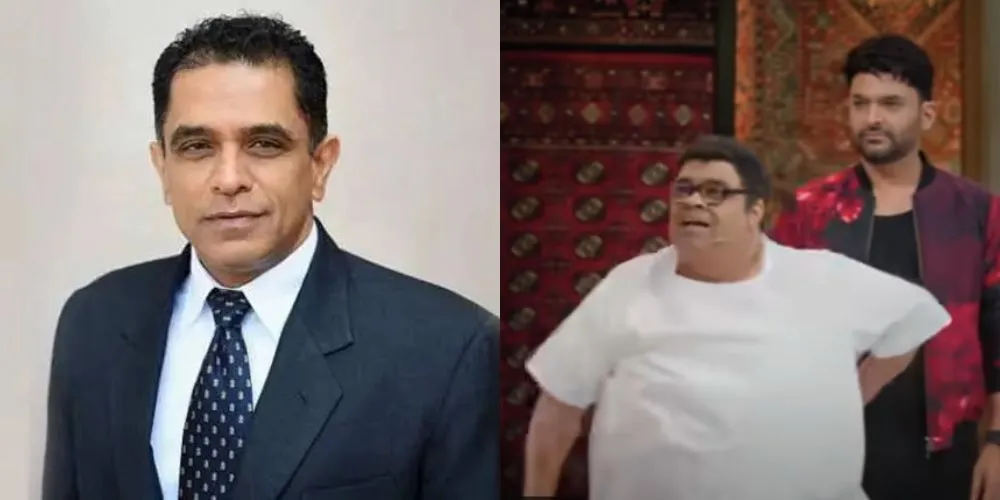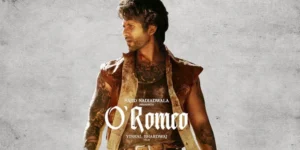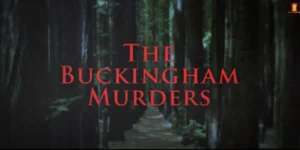
A legal storm has erupted in the heart of Bollywood’s entertainment industry. Producer Firoz Nadiadwala, the man behind the iconic Hera Pheri franchise, has served a massive ₹25 crore legal notice to Netflix and the creators of The Great Indian Kapil Show. The lawsuit claims a blatant violation of intellectual property rights, specifically over the unauthorized use of the beloved character, Baburao Ganpatrao Apte, on the popular comedy show.
The controversy stems from a promo for the show’s highly anticipated finale, where comedian Kiku Sharda performs a segment impersonating the legendary Baburao character, a role made immortal by veteran actor Paresh Rawal. The notice warns of severe legal action if the makers fail to comply with a series of demands, including the removal of the content and a hefty financial compensation.
The core of the dispute revolves around the principle of copyright and trademark infringement. In the legal notice, Firoz Nadiadwala’s team asserts that the character of Baburao Ganpatrao Apte is not merely a parody subject but a registered trademark owned by his family. This legal protection, they argue, gives them exclusive rights to the character’s name, likeness, and any commercial usage.
An official statement issued by Firoz Nadiadwala emphasized the sacredness of the character. “Baburao is more than a character; he embodies the very essence of Hera Pheri. This legacy was crafted through our hard work, vision, and creativity. Paresh Rawal ji brought life to the role with unmatched dedication. It is not something to be exploited for profit — culture deserves respect and preservation,” the statement read. This sentiment reflects the immense value and nostalgia attached to the franchise, which has a cult-like following across generations.
The lawsuit highlights multiple alleged violations, including Section 51 of the Copyright Act, which pertains to infringement of an author’s exclusive rights, and Section 29 of the Trademarks Act. The legal notice makes it clear that using an intellectual property—even for a brief comedic act—without permission is considered a serious offense.
The legal notice served to Netflix and the show’s production team lays out a clear and firm set of demands. First and foremost, Legal team of Firoz Nadiadwala has demanded the immediate removal of all segments featuring the Baburao character from Netflix, social media platforms, and any third-party channels. This is intended to stop the continued circulation of the allegedly infringing content.
Furthermore, the notice seeks a written undertaking from the makers that they will not use the character in any future episodes or projects without explicit permission. This is followed by a demand for a formal apology, which must be issued within 24 hours of the notice’s receipt. The most significant part of the notice is the financial demand: a whopping ₹25 crore in damages and compensation, to be paid within two days.
The notice concludes with a stern warning that failure to comply with these demands will result in the initiation of both civil and criminal proceedings against those involved. The sheer amount of the compensation and the threat of criminal action underscore the seriousness with which intellectual property rights are now being protected in the Indian entertainment industry.
The lawsuit has cast a shadow over what was meant to be a celebratory finale for The Great Indian Kapil Show, an episode that features superstar Akshay Kumar, a lead actor in the Hera Pheri franchise himself. As of the time of this report, there has been no official statement from the show’s team or from Netflix. The lack of a response adds to the uncertainty, leaving fans and industry insiders to speculate on what action the makers will take.
This legal battle serves as a landmark case for the Indian entertainment landscape. It sends a clear message to content creators, comedians, and production houses that iconic characters and catchphrases are not “free for all” and are, in fact, protected intellectual property. As the film industry moves towards building cinematic universes and leveraging existing intellectual property, the importance of securing rights and adhering to copyright laws has never been more critical. The outcome of this high-profile lawsuit will likely set a new precedent for how content creators handle parody, satire, and the use of copyrighted material in the future.




